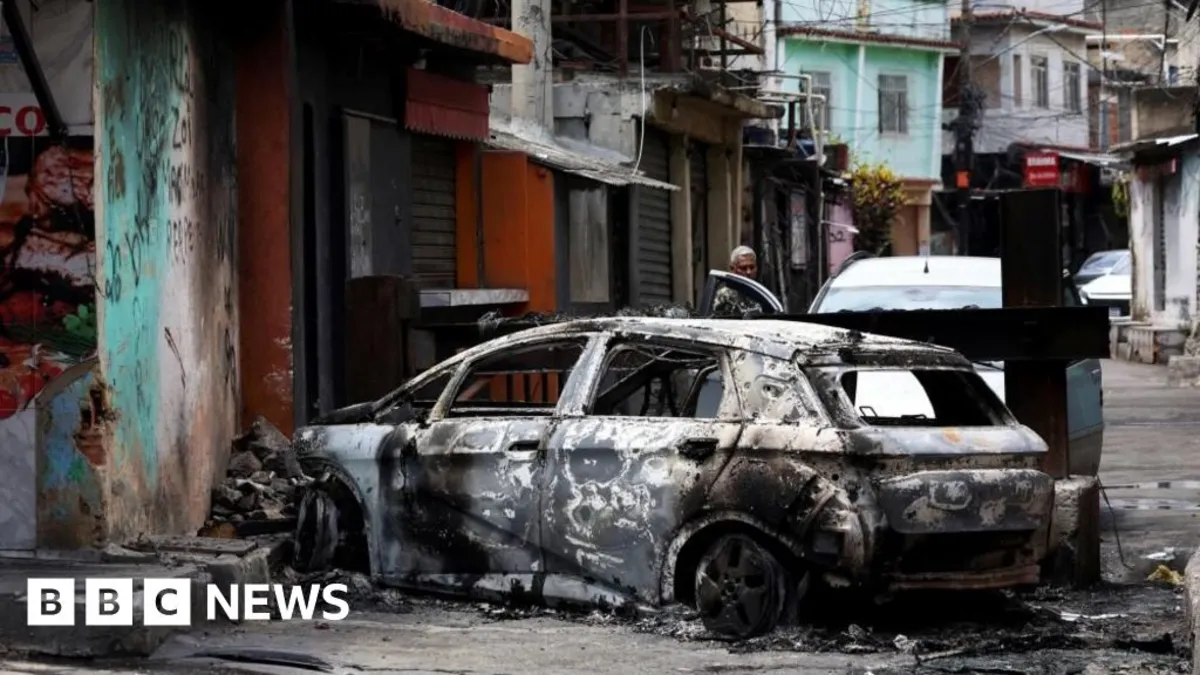
In a devastating police operation against the notorious Red Command gang in Rio de Janeiro's northern suburbs, at least 64 individuals lost their lives. This operation, known as Operation Containment, has been recorded as the largest and deadliest raid in the history of the Brazilian state. Among those killed were four police officers, as confirmed by state Governor Cláudio Castro.
On Tuesday morning, approximately 2,500 security personnel initiated the operation, leading to fierce clashes with gang members. The Red Command (Comando Vermelho) retaliated with gunfire, erected burning barricades, and even utilized drones to drop explosives, creating a chaotic scene in the affected areas of Alemão and Penha. The scale of violence has shocked local residents and garnered international attention.
The UN Human Rights Office expressed horror at the scale of the police operation, calling for prompt and effective investigations into the events that transpired. The favelas near Rio's airport, identified as the headquarters of one of Brazil's most powerful organized crime groups, have become a focal point for crime and violence, particularly with the ongoing struggle against the Red Command gang.
While state officials reported that at least 50 of those killed were identified by the police as suspected criminals, the operation also resulted in numerous injuries, including civilians caught in the crossfire. The local community, home to approximately 300,000 residents, has described the area as resembling a war zone since the operation commenced. Roads throughout the region remain closed, further isolating the affected neighborhoods.
The Red Command gang has been expanding its territory across the state of Rio, bolstering its control over drug trafficking routes and hillside favelas. During the raid, authorities seized over 200 kg (441 lb) of drugs and apprehended more than 80 individuals. Many of those arrested are believed to be affiliated with a faction from Pará state, who are currently hiding in Rio de Janeiro.
Large-scale police operations have become increasingly common in Brazil, particularly in the lead-up to major international events. The upcoming COP30 climate summit, scheduled to take place in the northern city of Belem in November, has prompted heightened security measures across the nation. As Brazil grapples with organized crime, the balance between maintaining public safety and respecting human rights continues to be a contentious issue.